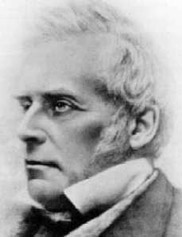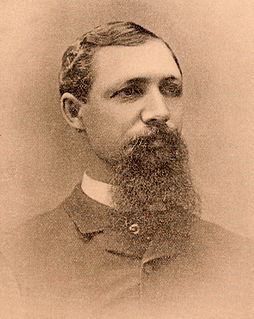A Quote by John Nelson Darby
This re-appearance of the doctrine of freewill serves to support that of the pretension of the natural man to be not irremediably fallen, for this is what such doctrine tends to. All who have never been deeply convicted of sin, all persons in whom this conviction is based on gross external sins, believe more or less in freewill
Related Quotes
...[sacred] doctrine is especially based upon arguments from authority, inasmuch as its principles are obtained by revelation: thus we ought to believe on the authority of those to whom the revelation has been made. Nor does this take away from the dignity of this doctrine, for although the argument from authority based on human reason is the weakest, yet the argument from authority based on divine revelation is the strongest.
This doctrine of forgiveness of sin is a premium on crime. Forgive us our sins means Let us continue in our iniquity. It is one of the most pernicious of doctrines, and one of the most fruitful sources of immorality. It has been the chief cause of making Christian nations the most immoral of nations. In teaching this doctrine Christ committed a sin for which his death did not atone, and which can never be forgiven. There is no forgiveness of sin. Every cause has its effect; every sinner must suffer the consequences of his sins.
If you can impress any man with an absorbing conviction of the supreme importance of some moral or religious doctrine; if you can make him believe that those who reject that doctrine are doomed to eternal perdition; if you then give that man power, and by means of his ignorance blind him to the ulterior consequences of his own act,-he will infallibly persecute those who deny his doctrine.
As we mature personally, as our families mature, and as our churches mature, we need the doctrine of sin more, not less; and we need to keep growing in rightly understanding and applying this doctrine. Be assured that this is no less true if you're a pastor or teacher or ministry worker. There's no pastoral privilege in relation to sin. There's no ministry exemption from the opposition of the flesh. There's only a heightened responsibility to oppose sin and to weaken the flesh, as an example to the flock.
As I conceive this doctrine to be a gross misrepresentation of the character and moral government of God, and to affect many other articles in the scheme of Christianity, greatly disfiguring and depraving it; I shall show, ... that it has no countenance whatever in reason, or the Scriptures; and, therefore, that the whole doctrine of atonement, with every modification of it, has been a departure from the primitive and genuine doctrine of Christianity.
No more soul-destroying doctrine could well be devised than the doctrine that sinners can regenerate themselves, and repent and believe just when they please...As it is a truth both of Scripture and of experience that the unrenewed man can do nothing of himself to secure his salvation, it is essential that he should be brought to practical conviction of that truth. When thus convinced, and not before, he seeks help from the only source whence it can be obtained.
Many women to whom I have preached the doctrine of freedom have weakly replied, 'But who is to support the children?' It seems to me that if the marriage ceremony is needed as a protection to insure the enforced support of children, then you are marrying a man who, you suspect, would under certain conditions, refuse to support his children, and it is a pretty low-down proposition. For you are marrying a man whom you already suspect of being a villain. But I have not so poor an opinion of men that I believe the greater percentage of them to be such low specimens of humanity.





































